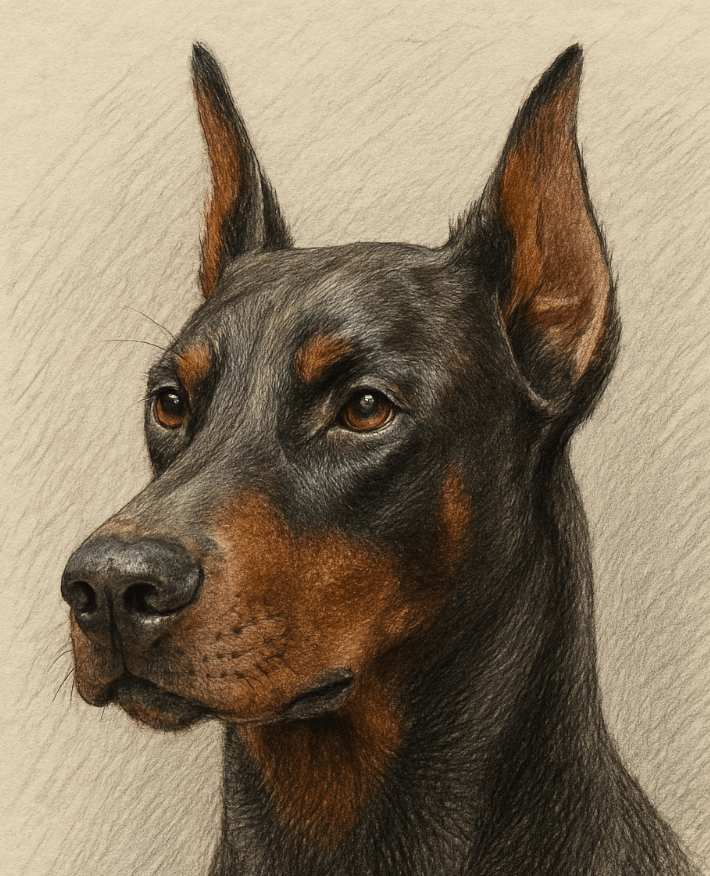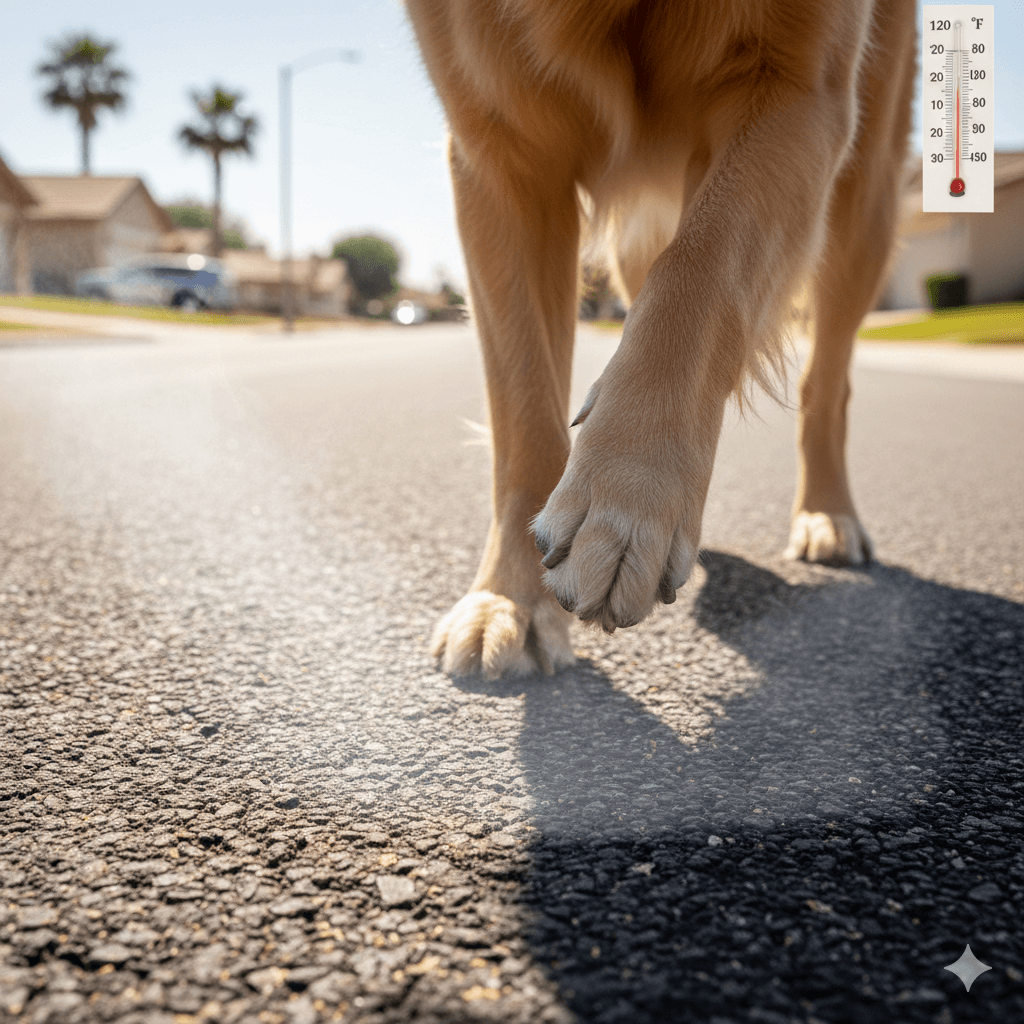Are Dobermans Hypoallergenic? What You Need to Know
Dobermans are one of the most beloved dog breeds, known for their loyalty, intelligence, and sleek appearance. However, for individuals with allergies, the question often arises: Are Dobermans hypoallergenic? While no dog breed is completely allergen-free, some breeds produce fewer allergens than others, making them more suitable for allergy sufferers. In this blog post, we’ll explore whether Dobermans fall into this category, discuss their shedding habits, grooming needs, and provide practical tips for managing allergies if you’re considering bringing a Doberman into your home.
Do Dobermans Shed? Understanding Their Coat Characteristics
To determine if Dobermans are hypoallergenic, it’s essential to understand their coat type and shedding patterns. Here’s what you need to know about their fur and how it might affect allergy sufferers.
Short, Smooth Coat:
Dobermans have a sleek, short coat that lies close to their body, which minimizes shedding compared to long-haired breeds.Moderate Shedding Levels:
While they don’t shed excessively, Dobermans still shed year-round, particularly during seasonal changes in spring and fall.Low Dander Production:
Dander, not hair, is the primary cause of pet allergies. Dobermans produce moderate levels of dander, which may be manageable for some allergy sufferers.Minimal Grooming Needs:
Their coat requires minimal maintenance, reducing the amount of loose hair and dander in your home.Not Truly Hypoallergenic:
Despite their manageable shedding, Dobermans are not classified as hypoallergenic due to their dander production and occasional shedding.
While Dobermans aren’t hypoallergenic, their coat characteristics make them a relatively low-maintenance option for those with mild allergies.
Tips for Managing Allergies Around Dobermans
If you’re an allergy sufferer but still want to share your life with a Doberman, there are several strategies to minimize allergic reactions. Here are some practical tips to help you coexist comfortably.
Regular Bathing:
Bathe your Doberman weekly to remove loose hair and reduce dander buildup on their skin.Frequent Brushing:
Use a grooming tool designed for short-haired dogs to capture loose fur before it spreads around your home.Air Purifiers:
Invest in high-quality air purifiers with HEPA filters to trap allergens and improve indoor air quality.Designated Pet-Free Zones:
Keep certain areas of your home, such as bedrooms, off-limits to your Doberman to create allergy-safe spaces.Wash Hands After Contact:
Always wash your hands after petting or playing with your dog to prevent allergens from spreading to your face or eyes.
By implementing these measures, you can significantly reduce allergen exposure while enjoying the companionship of a Doberman.
Check this guide 👉Why Are Chihuahuas So Aggressive? Best 7 Behavior Tips!
Check this guide 👉Do Dobermans Shed? Best 7 Expert Tips!
Check this guide 👉Doberman Bite Force: Best 7 Expert Tips!

Hypoallergenic Breeds | Non-Hypoallergenic Breeds |
|---|---|
Poodle | Doberman |
Bichon Frise | Labrador Retriever |
Portuguese Water Dog | German Shepherd |
Schnauzer | Golden Retriever |
Basenji | Bulldog |
Grooming Tips for a Doberman’s Coat
Proper grooming is key to managing shedding and minimizing allergens in your home. Follow these steps to keep your Doberman’s coat healthy and clean.
Brush Weekly:
Use a rubber grooming mitt or soft-bristle brush to remove loose hairs and distribute natural oils across their coat.Bathe Every 4-6 Weeks:
Use a gentle, dog-specific shampoo to avoid irritating their skin while keeping their coat fresh and clean.Check for Skin Issues:
Inspect your Doberman’s skin regularly for signs of dryness, irritation, or excessive dander production.Keep Nails Trimmed:
Regular nail trims prevent overgrowth and reduce the risk of scratching-related injuries or infections.Clean Ears and Teeth:
Incorporate ear cleaning and teeth brushing into your grooming routine to maintain overall hygiene.
Consistent grooming not only keeps your Doberman looking great but also helps manage allergens effectively.
Signs That a Doberman May Not Be Right for You (Allergy-Wise)
Before committing to a Doberman, consider whether your allergies might pose a challenge. Here are some signs that this breed may not be the best fit for you.
Persistent Sneezing or Coughing:
If you experience constant respiratory symptoms around dogs, a Doberman’s moderate shedding may worsen your condition.Itchy Eyes or Skin Reactions:
Allergic reactions like redness, swelling, or itching indicate sensitivity to pet dander.Difficulty Breathing:
Severe asthma or breathing issues triggered by pets could make living with a Doberman challenging.Increased Cleaning Efforts:
If maintaining a clean, allergen-free environment feels overwhelming, a higher-shedding breed may not suit your lifestyle.Reluctance to Spend Time Together:
If you find yourself avoiding contact with your dog due to allergies, it may signal incompatibility.
Recognizing these signs early can save both you and your potential pet from unnecessary stress.
Common Misconceptions About Hypoallergenic Dogs
There are several myths surrounding hypoallergenic dogs that can lead to confusion when choosing a breed. Here’s what you need to know to separate fact from fiction.
Myth: Hypoallergenic Dogs Don’t Shed:
Even hypoallergenic breeds shed, but they produce fewer allergens through their saliva and skin.Myth: Allergy Sufferers Can’t Live with Non-Hypoallergenic Breeds:
Many people with allergies successfully live with non-hypoallergenic dogs by managing their environment.Myth: Short-Haired Breeds Are Better for Allergies:
Short-haired breeds like Dobermans still produce dander, which is the main culprit behind pet allergies.Myth: Hypoallergenic Breeds Require No Grooming:
These breeds often need frequent grooming to maintain their coat and reduce allergens.Myth: Allergies Depend Solely on the Breed:
Individual reactions vary, so spending time with a specific dog is the best way to gauge compatibility.
Understanding these misconceptions helps set realistic expectations when selecting a dog breed.
Health Benefits of Owning a Doberman (Even with Allergies)
Despite potential allergy concerns, owning a Doberman comes with numerous physical, emotional, and social benefits.
Increased Physical Activity:
Dobermans require daily exercise, encouraging owners to stay active and healthy.Emotional Support:
Their loyal and affectionate nature provides comfort and reduces stress or anxiety.Improved Social Connections:
Walking a Doberman often sparks conversations and fosters new friendships with fellow dog lovers.Enhanced Security:
Known for their protective instincts, Dobermans offer peace of mind and a sense of safety.Teaching Responsibility:
Caring for a Doberman instills discipline and accountability, especially in households with children.
These benefits highlight why Dobermans remain a popular choice despite their moderate shedding tendencies.
Alternative Solutions for Severe Allergy Sufferers
If your allergies are severe but you still dream of having a dog, consider these alternatives to traditional pet ownership.
Adopt an Older Dog:
Senior dogs often shed less and produce fewer allergens than puppies, making them easier to manage.Choose a Smaller Breed:
Smaller dogs typically produce less dander and hair, reducing allergen exposure.Invest in Allergy-Friendly Products:
Use allergen-resistant covers for furniture, bedding, and car seats to minimize contact with pet dander.Consult an Allergist:
Seek professional advice on managing allergies or exploring treatments like immunotherapy.Consider Fostering First:
Foster a Doberman or similar breed temporarily to assess how your allergies respond before committing fully.
These solutions provide flexibility for allergy sufferers who want to enjoy the joys of dog ownership responsibly.
Frequently Asked Questions About Dobermans and Allergies
Are Dobermans good for people with allergies?
While not hypoallergenic, their moderate shedding and grooming needs may work for individuals with mild allergies.
How often do Dobermans shed?
They shed moderately year-round, with heavier shedding during seasonal transitions.
Can bathing reduce dander?
Yes, regular baths can help control dander levels and minimize allergens.
What’s the best way to clean my home with a Doberman?
Vacuum frequently with a HEPA filter vacuum and wash bedding regularly to reduce allergens.
Are there hypoallergenic alternatives to Dobermans?
Yes, breeds like Poodles, Bichon Frises, and Schnauzers are better options for allergy sufferers.
Finding Balance Between Love for Dobermans and Allergy Management
While Dobermans are not hypoallergenic, their manageable shedding and grooming needs make them a viable option for many families, including those with mild allergies. By understanding their coat characteristics, implementing effective cleaning routines, and prioritizing your health, you can enjoy the companionship of this incredible breed without compromising your well-being. Remember, every dog is unique, so spend time with a Doberman before making a decision to ensure compatibility. With love, care, and preparation, you can create a harmonious home where both you and your Doberman thrive.
Newfoundland Dog Personality: Best 7 Expert Tips! – Discover the gentle, loyal, and protective nature of this giant breed perfect for families.
Can Hot Pavement Burn Your Cats Paws? Best 7 Expert Tips! – Learn how to protect your cat’s paws from hot surfaces and prevent painful burns this summer.
Can Hot Pavement Burn Your Dogs Paws? Best 7 Expert Tips! – Learn how to protect your dog’s paws from hot surfaces and ensure safe summer walks.
Irish Wolfhound Size: Best 7 Expert Tips! – Discover the ideal height, weight, and care tips for this majestic giant breed. Learn how to manage their impressive stature responsibly.




